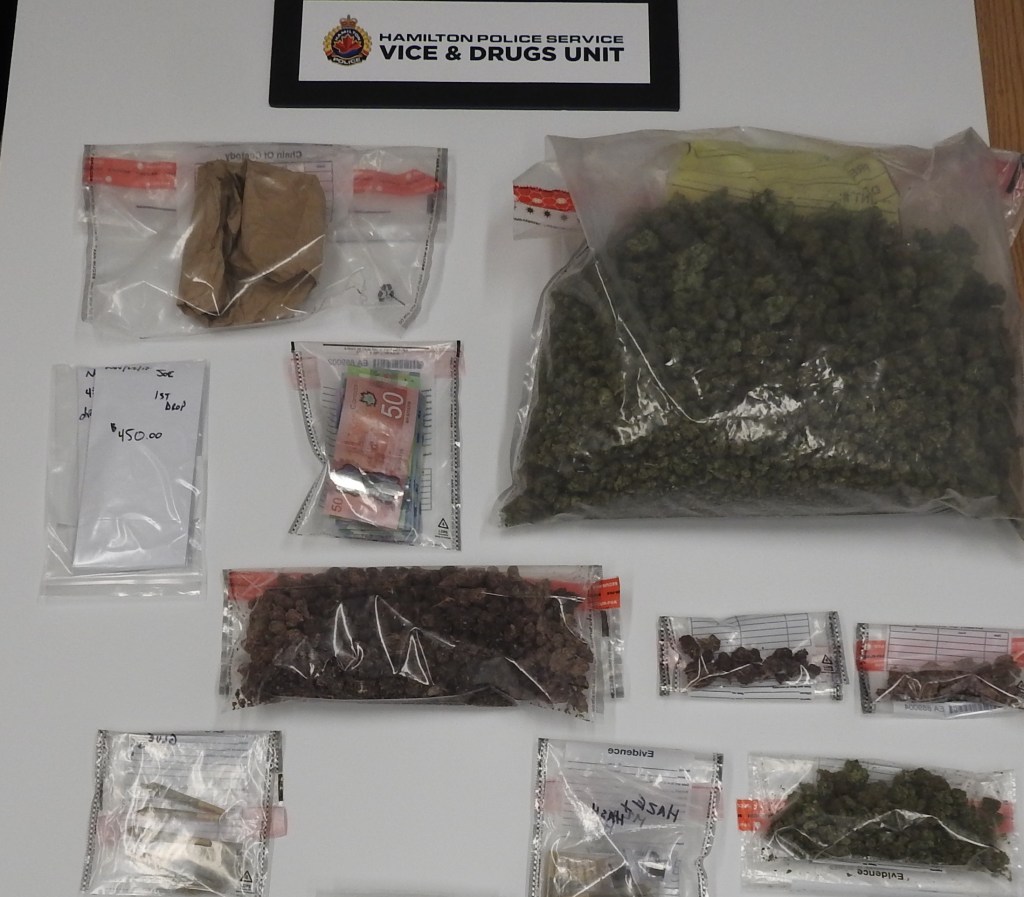Raids on weed dispensaries have been panned by many as a waste of police resources, seeing as recreational cannabis will soon be legal. But recently, one Hamilton police officer broke down just how much of a strain they really are, noting that cops in that city are struggling to even store the illegal weed they confiscate.
Under federal law, no weed dispensaries are legal in Canada, but law enforcement officials in various municipalities have taken different approaches in dealing with them.
Videos by VICE
Vancouver has decided to give weed dispensaries business licenses in an attempt to regulate them, but Toronto police have taken an aggressive stance in executing mass raids such as Project Claudia. Despite the fact that vast numbers of charges issued in raids end up being dropped anyway, Toronto police spokesman Mark Pugash has maintained that the raids are not a waste of time.
“The target is illegal businesses that are making large amounts of money, selling product of unknown origin that poses a health risk to people,” he previously told VICE.
He has also said it’s a mistake to look at weed raids as taking away resources from another area.
However, Supt. Ryan Diodati, head of Hamilton’s police’s investigative services, recently said the opposite is true for his force. Hamilton has at least 46 illegal pot shops, according to police, which is potentially more per capita than anywhere else in the province. In a report he presented to city council at the end of January, Diodati described in great detail just how difficult it is to shut down weed dispensaries—citing everything from a lack of storage for weed seized to the deep pockets that allow some dispensaries to re-open immediately:
Storage:
“The storage of evidence depending on the size of the dispensary is tremendous,” Diodati told council.
“We have limited space for our drug storage. As you can imagine there’s the venting considerations that we have, there’s a strong, pungent odour with processed marijuana, so we can’t just put it into any closet in our police facility.”
Diodati said storing the dank weed an an external facility comes with its own security challenges.
“We would be a target for a break and enter. It becomes cost prohibitive to store these exhibits off site.”
Time and costs of processing edbiles:
Diodati said processing edibles in particular is extremely time consuming for cops.
“We have to take pieces from each exhibit to prove there’s a cannabis component to it,” he said, noting the evidence must be sent off to Health Canada for testing. “Everyone is familiar with the size of a gummy bear. We could have thousands of gummy bears and if we were to properly sample them for Health Canada, we should be cutting off a leg or an arm of each gummy bear.”
He said cops could easily “be into the hundreds of hours” in processing evidence just for one dispensary. To save time, he said they are bulk storing a lot of the items.
Just one dispensary busted in December required 130 hours of staffing time, he said.
Court:
Diodati said court requires additional resources, including doing paperwork, processing evidence and attending court.
Cutting into fentanyl and other drug investigations:
Opioid-related overdose deaths have surged in Hamilton, with 75 residents dying from an opioid overdose from January to October 2017—an 80 percent jump from the 41 who died in the same time period the year before.
Per capita, the city’s fatal opioid overdose rate is almost double the provincial average.
“The people who are responsible for investigating these dispensaries are the same people who are responsible for investigating our opioid-based drugs as well, fentanyl, carfentanil, etc,” said Diodati. “And we only have so many bodies, so if we’re devoting all our staffing hours to dispensaries there’s something else that might be missing.”
Owners evade arrest:
Another issue, said Diodati, is even after all the time police spend executing one search warrant, they aren’t necessarily able to nab the owners or operators. Often, he said the people inside identify themselves as “volunteers.”
“The owner basically leaves the volunteer or staff member on their own and that person gets charged with a trafficking offence,” he said.
Dispensaries don’t quit:
While members of the public often assume cops can just execute a search warrant on a dispensary without much legwork, Diodati said it’s far more complicated than that, with a single investigation requiring resources from multiple teams in order to investigate the pot shop and gather enough evidence to make arrests.
“It’s not as simple just walking in looking around and seeing there’s marijuana in there, it takes more than that,” he said.
But he said even after police move in, seizing thousands of dollars in proceeds of crime, and weed, “in most cases they’re open that same day or the very next day, refilled shelves and ready to go for business.” They re-open with a new group of people purportedly in charge, he said.
In order to go back in and make arrests, investigators must start from square one, making observations and collecting evidence.
Despite the many challenges, Diodati said because dispensaries are still illegal, his force will continue to enforce the law. Under Ontario’s legalization plan, only government-run storefronts will be allowed to sell weed. It’s unclear what will happen to the hundreds of dispensaries currently operating in the grey market.
Follow Manisha Krishnan on Twitter.
More
From VICE
-

Photo: Adrienne Bresnahan / Getty Images -

Photo: maiteali / Getty Images -

Photo: GK Hart/Vikki Hart / Getty Images

